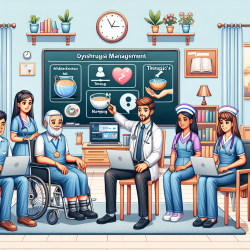As practitioners dedicated to improving outcomes for children, it is crucial to stay informed about the latest research findings and understand their implications. A recent study published in PLoS ONE, titled Inflammatory cytokines and growth factors were not associated with psychosis liability or childhood trauma, provides significant insights that can help guide our practice.
This study examined the relationship between childhood trauma, inflammation, and psychosis. Specifically, it analyzed serum levels of various cytokines and growth factors in individuals with different levels of psychosis liability and childhood trauma. The findings indicated no statistically significant effects of psychosis liability or childhood trauma on the concentrations of these biomarkers.
While these results may seem surprising, they highlight several critical points for practitioners:
- Complex Interactions: The study underscores the complexity of interactions between genetic liability, environmental factors, and the immune system. It suggests that the relationship between childhood trauma and psychosis is not straightforward and may involve multiple pathways and mediators.
- Importance of Comprehensive Assessment: Given the multifactorial nature of psychosis, a comprehensive assessment that includes genetic, environmental, and immunological factors is essential. Practitioners should consider these diverse elements when evaluating and treating children with a history of trauma.
- Focus on Holistic Interventions: The lack of significant findings regarding cytokines and growth factors does not negate the importance of addressing inflammation in clinical practice. Instead, it emphasizes the need for holistic interventions that consider physical, psychological, and social aspects of health.
For practitioners, these insights can be implemented in several ways:
- Stay Informed: Keep abreast of the latest research to understand the evolving landscape of psychosis and childhood trauma. This knowledge will enable you to make informed, evidence-based decisions.
- Collaborate with Researchers: Engage with researchers to explore new hypotheses and contribute to the growing body of knowledge. Collaborative efforts can lead to more robust findings and better clinical practices.
- Individualized Care: Tailor interventions to the unique needs of each child, considering their genetic, environmental, and immunological background. Personalized care can lead to better outcomes and more effective treatment strategies.
By integrating these findings into your practice, you can enhance your ability to support children with a history of trauma and psychosis. The journey towards better outcomes is ongoing, and staying informed and adaptable is key to success.
To read the original research paper, please follow this link: Inflammatory cytokines and growth factors were not associated with psychosis liability or childhood trauma.










